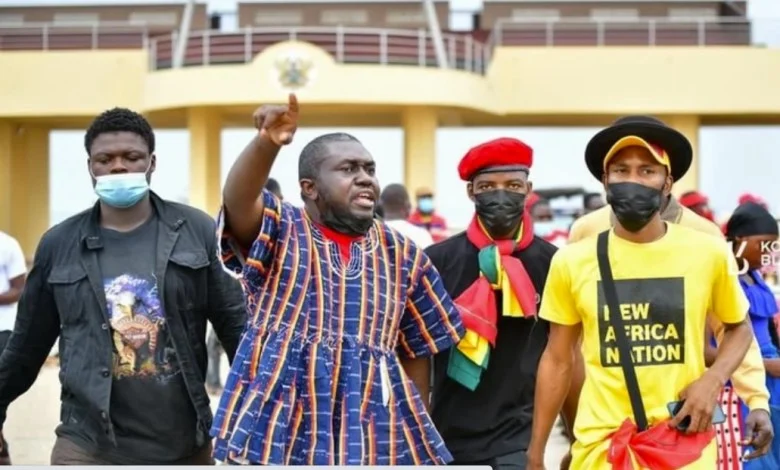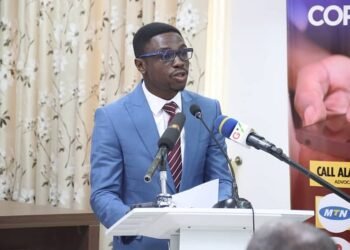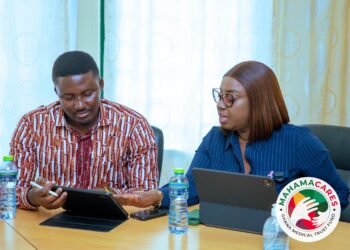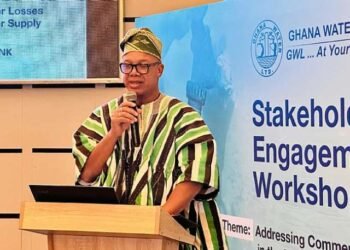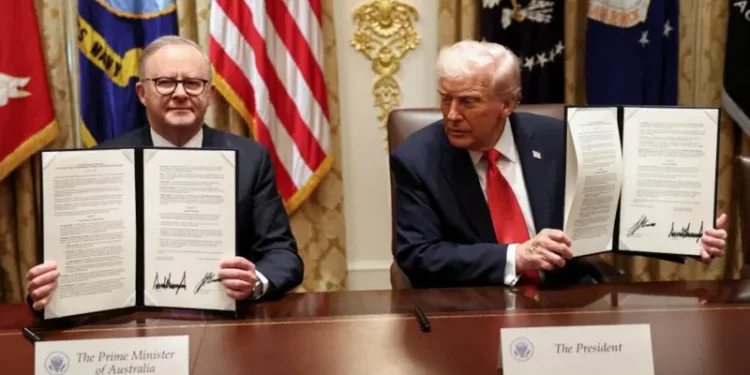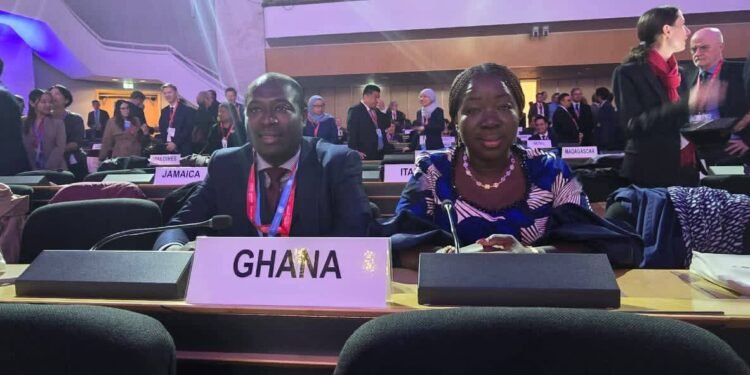Oliver Barker Vormawor, leader of the ‘Fix the Country Movement’, and other petitioners have issued a response to the Electoral Commission’s (EC) press statement regarding the disenfranchisement of the SALL communities in the Oti Region during the 2020 Parliamentary elections.
They noted that their attention has been drawn to a recent press statement issued by the Electoral Commission through which the EC sought to decline any legal, moral, or factual responsibility for disenfranchising the people of Santrokofi, Akpafu, Lolobi, and Likpe (SALL)
They stated that the Commission’s statement is legally flawed and shows a worrying lack of understanding of its independent mandate and constitutional autonomy, raising concerns about its impartiality and integrity.
As such, they argued that the EC’s integrity is compromised by its admission that it answers to the President and his appointees, rather than the Constitution, revealing a stark disregard for its independent mandate.
Furthermore, the petitioners indicated that on 12 October 2017, the President appointed the Brobbey Commission to inquire into the need and substantial demand for the creation and alteration of regions.
As such, on June 26, 2018, the Commission of Inquiry recommended creating a new Oti Region, comprising Lolobi, Akpafu, Santrokofi, and Likpe traditional areas in Hohoe Municipality, in its report to the President.
However, the 2016 Representation of People Instrument (C.I. 95) paradoxically included Lolobi, Akpafu, Santrokofi, and Likpe in the Hohoe Constituency in the Volta Region, despite the creation of the Oti Region.
They contended that the EC was legally bound to issue a new CI by February 1, 2019, to transfer SALL to the Oti Region for voting purposes, but failed to do so, denying the people of SALL their rightful voting allocation.
“Following a Constitutional challenge in the Supreme Court, the Court specifically instructed the Electoral Commission to amend the C.I. 95, in these clear terms: ‘Accordingly, we order the Electoral Commission to amend CI 95 to bring it in conformity with CI 112. Such amendment shall take effect upon the next dissolution of parliament that is after midnight of 6th January 2021’. [Dzatse Vrs Ametefe and Others (J6/01/2020) [2020] GHASC 45 (24 June 2020)]”
Oliver Barker Vormawor and Fellow Petitioners
Moreover, they noted that following the Dzatse decision, the EC implemented the Supreme Court’s directive in July 2020, issuing C.I. 128, which placed Santrokofi, Akpafu, Lipke, and Lolobi in the Buem Constituency, effective August 11, 2020.
As such, they stated that the EC’s C.I. 128 aimed to divide Ghana into 275 constituencies for parliamentary elections, starting with the January 2021 sitting and subsequent polls.
However, they pointed out that, on the eve of the parliamentary elections, the EC issued a statement limiting eligible voters in the Guan District to voting only in the presidential election, not the parliamentary one.
EC’s Justification for Disenfranchising SALL Residents Unpersuasive
Furthermore, Oliver Vormawor and his fellow petitioners noted the Electoral Commission’s claim that a letter from the Minister of Local Government directing the Commission to create a new constituency for SALL, justified denying SALL residents the right to vote is unpersuasive and unacceptable.

They argued that the Constitution gave the EC sole authority over constituency creation to prevent political manipulation and protect voting rights, emphasizing that it is disturbing that the EC would suddenly deny SALL residents the right to vote, contradicting its own regulations.
Moreover, they indicated that the EC’s claim that a new constituency must be created due to a new district is baseless in law and logic, noting that there is no requirement for a one-to-one district-constituency ratio, and this assumption lacks legal merit.
“The fact is that in Ghana now, we have 275 constituencies and 261 districts. This means that there are districts that overlap different constituencies. This is something the Constitution recognizes that situation and allows. 17. In essence, at the time the Electoral Commission issued its Statement of 6 December 2020, it was aware, or its constitutional functions required that it be aware that the ‘eligible voters in the Guan District’ were constitutionally entitled to vote as part of the Buem Constituency, as stated in C.I. 128”.
Oliver Barker Vormawor and Fellow Petitioners
The petitioners further contended that there is no constitutional requirement that districts in this country cannot straddle more than one Constituency, stressing that Article 242(b) confirms that the Constitution contemplates such a scenario.
They also noted that there was no constitutional basis for subjecting the right of voters in the Guan District to vote under Article 42 as part of the Buem Constituency to the existence or subsequent creation of new districts.
Moreover, they indicated that there was no Guan Constituency in existence and that the only constituency that existed in which the eligible voters in the Guan District could vote and be represented was the Buem Constituency as stated in C.I. 128 which was made under the hand of the EC.
Accordingly, they argued that the Electoral Commission was precluded from creating the Guan constituency, issuing the requisite Constitutional Instrument under Article 11(7), and conducting elections in that constituency by January 7, 2021.
“This was more so because under Article 112(4) of the 1992 Constitution, General election of members of Parliament shall be held within thirty days before the expiration of the four-year term of Parliament from the date of its first sitting, which would have been 7 January 2021. And that in accordance with this Article, the latest day the parliamentary election could have been held was 7 December 2020”.
Oliver Barker Vormawor and Fellow Petitioners
Furthermore, they noted that Parliament had announced its adjournment on November 7, 2020, and had already adjourned sine die by the time the Electoral Commission issued its statement, rendering the creation of a new constituency impossible.
They also indicated that, following the Supreme Court’s decision in the Dzatse case, the EC was aware that requiring a new Guan Constituency as a precondition for voting would disenfranchise eligible voters in the Guan District, leaving them unrepresented in the Eighth Parliament of the Fourth Republic.
As such, they insisted that the decision of the EC to deny the eligible voters of the Guan District to vote in the 2020 Parliamentary elections as part of the Buem Constituency was in direct contravention of C.I. 128, which was made by the EC itself.
Moreover, they stated that the EC’s actions breached the 1992 Constitution, depriving SALL’s eligible voters of their right to vote and effectively suspending a crucial part of the Constitution, indicating that this violation undermined the Commission’s constitutional duty to safeguard voting rights.”
“We are convinced that the actions of the Electoral Commission were either intentional or negligent and thus criminal; or that they were a demonstration of ineptitude, both of which are disqualifying”.
Oliver Barker Vormawor and Fellow Petitioners
Oliver Vormawor and his fellow petitioners noted that despite efforts to silence them, they remain hopeful that those who orchestrated this attack on Ghana’s democracy will be brought to justice and held accountable for their crimes against the Republic.
READ ALSO: Burna Boy Debunks Impotency Claims



